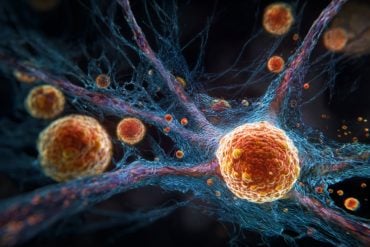Summary: Young people are more susceptible to pleading guilty to a crime, even though they are innocent. Researchers say the differences in children’s brains which affect their sensitivity to reward and punishment, and differences in information processing could be factors as to why they are more likely to plead guilty.
Source: University of Exeter
Young people need additional support and protection in the criminal justice system because they are more susceptible to pleading guilty when innocent, a new study argues.
The study says differences in children’s brains, which affect their sensitivity to pressure and rewards, and differences in the way they process information, make it more likely they will admit to crimes they didn’t commit when incentivized to do so.
These developmental vulnerabilities mean solicitors and barristers should get extra support to help them better support young people deciding whether to admit guilt.
Dr Rebecca Helm, from the University of Exeter, who led the research, published in the Journal of Law and Society, said: “The criminal justice system relies almost exclusively on the autonomy of defendants, rather than accuracy, when justifying convictions via guilty plea. But children don’t necessarily have the capacity to make truly autonomous decisions in this context, where they face a variety of really compelling pressures.
“Children are likely to misunderstand information, not admit they don’t understand and agree with statements, or succumb to pressure from others and the system. They may be unsure whether they have committed a legal offence, or whether there is a defence they can rely on.
“The incentives offered to encourage guilty pleas, and time pressures associated with them, are likely to interact with developmental vulnerabilities in children to create an environment in which innocent children are systematically pleading guilty.”
In England and Wales, the majority of defendants plead guilty rather than contest their guilt at trial. In 2019, 61 percent of child defendants in the Crown Court pleaded guilty (with 58 percent pleading guilty at their first hearing), and 47 percent of child defendants in the Youth Court pleaded guilty at their first hearing.

Children who enter a guilty plea at the earliest possible opportunity to do so can get a reduction in their sentence of up to a third compared to what they would receive if convicted at trial, or receive a referral order or a youth rehabilitation order when they would face a custodial sentence at trial.
The study says that these reductions are not appropriate in children and have the potential to create pressures to plead. It would be better to award tailored reductions to children based on less prescriptive guidelines and individual case circumstances, including defendant age.
Dr Helm said: “We now have a fairly good understanding of decision-making in children, and how it differs from decision-making in adults. It is therefore not appropriate to continue to put children accused of criminal offences in situations where it is predictable that they will ‘admit’ guilt even when innocent, and then punish them as if they are guilty. Ensuring children have appropriate and tailored protection when deciding whether to plead guilty is really important.”
About this neurodevelopment research news
Source: University of Exeter
Contact: Press Office – University of Exeter
Image: The image is in the public domain
Original Research: Open access.
“Guilty pleas in children: legitimacy, vulnerability, and the need for increased protection” by Rebecca K. Helm. Journal of Law and Society
Abstract
Guilty pleas in children: legitimacy, vulnerability, and the need for increased protection
This article assesses the extent to which current guilty plea procedure is consistent with legitimations of criminal convictions, with a focus on decision making in child defendants.
I argue that in the context of plea decisions in children, the criminal justice system must ensure that defendants make decisions that result in accurate convictions that are reached in a fair way that respects rights.
The current system does not do this due to an almost exclusive focus on autonomy. This focus is likely to be leading to illegitimate convictions, most importantly children pleading guilty when innocent.
Drawing on psychological theory, I develop a model of guilty plea decision making and draw on this model to identify relevant vulnerabilities of child defendants.
Based on this analysis, I identify ways in which current procedure in England and Wales may be leading to systematic problems with the legitimacy of convictions of children, and suggest reforms to enhance such legitimacy.
These reform suggestions focus on England and Wales but have implications for plea systems around the world.







